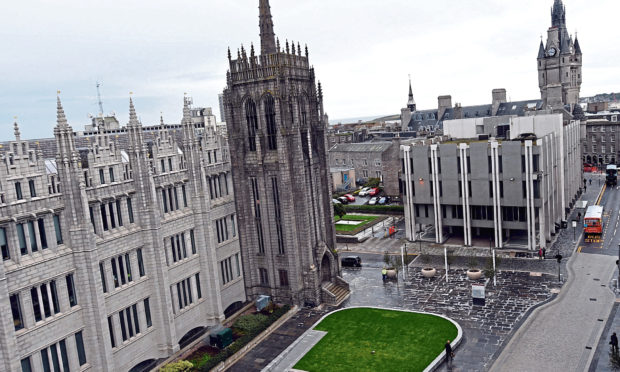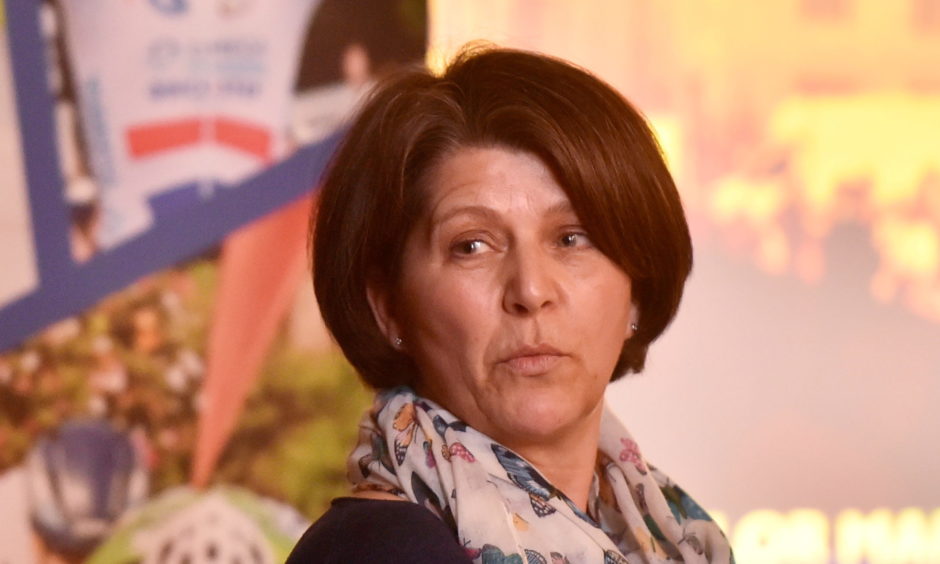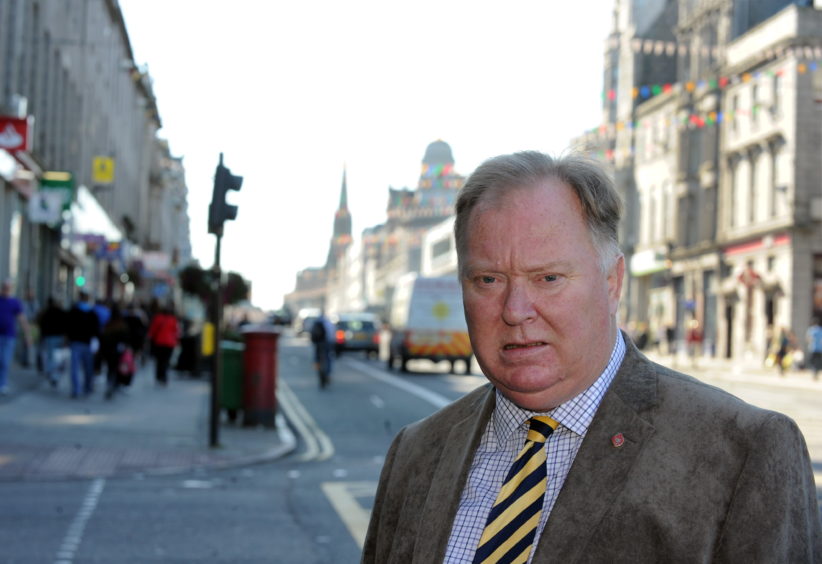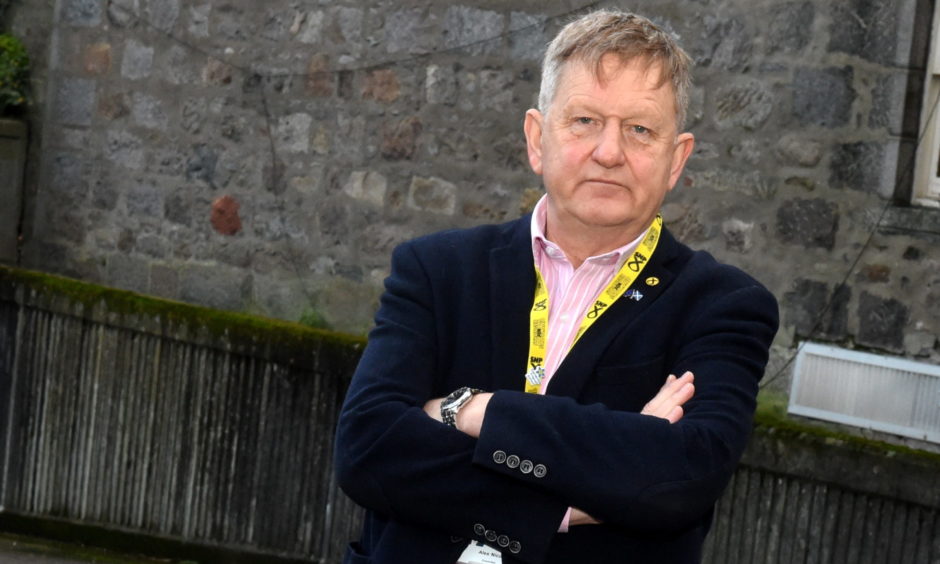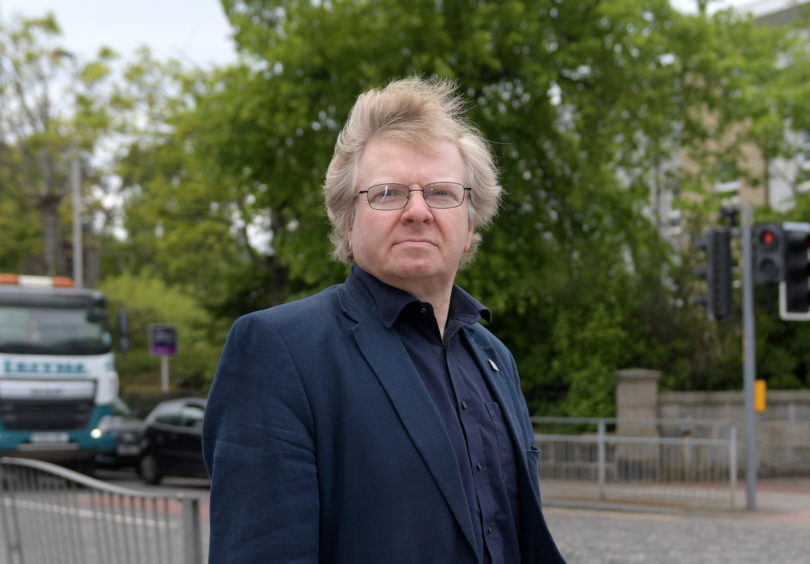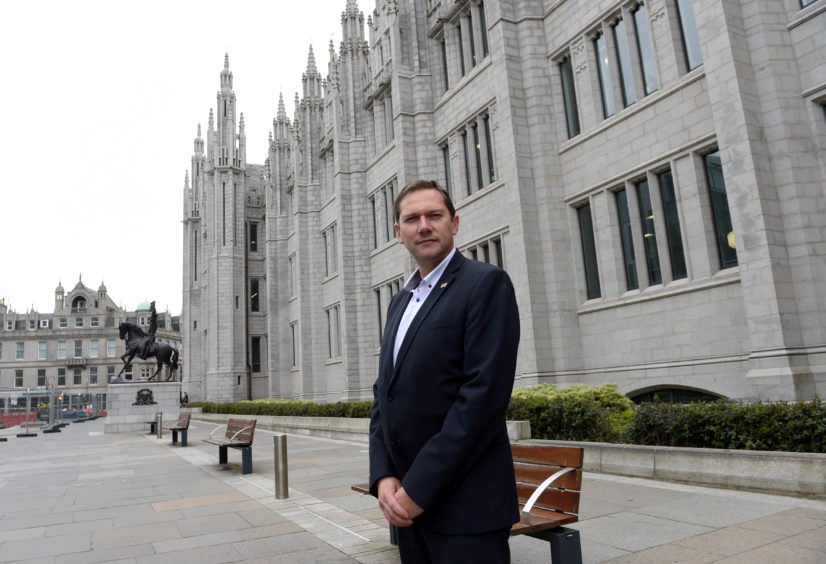Aberdeen councillors have branded a lack of live public scrutiny of the few committee meetings still going ahead during the coronavirus crisis as “unacceptable”.
Most meetings have been suspended during the crisis with decisions needing an immediate outcome to be taken by the urgent business committee.
The body is made up of far fewer members than regular committees, reducing risk to councillors and officers if the meeting were to be held at the Town House.
But there are exceptions to the blanket postponement, as the planning and licensing committees will continue to meet.
On Friday, the planning committee will muster from their homes, using online conferencing software to make decisions on what one member called “the biggest agenda in years”.
Planning convener Marie Boulton warned efforts to find a means of live-streaming the meetings could “remove IT officers from critical Covid-19 work”.
Up for discussion are plans on the redevelopment of Aberdeen Market, more than 500 homes in Bridge of Don and a care home and residential development at Inchgarth.
But unlike in normal times, the public and reporters will have to rely on recordings of the proceedings – without the means to view them in real-time.
Longstanding member of the planning committee Bill Cormie has indicated he will not be taking part in the online proceedings, as he does not have faith in the technology.
“I made the decision before the agenda came out that I did not have the confidence in the software – even though the SNP group have been using it since the start of lockdown,” Mr Cormie said.
“I see that it can work and means people can stay at home, but it sometimes doesn’t work and has severe disadvantages too- like people disappearing off screen.
“Now seeing the agenda I know I made the right decision because these are huge applications – too big, in my opinion, to consider in a conference call.”
A row, bubbling beneath the surface at the Town House over the past few days, boiled over last night.
Opposition councillors have been pushing to have meetings live-streamed, as full council meetings generally are from the main chamber.
Liberal Democrat group leader Ian Yuill called for real-time public access to the video calls, telling The P&J it is “a vital part of our democracy” which must be maintained.
Similarly the SNP group leader Alex Nicoll said he believed providing live streams was “in the interest of openness, democracy and transparency”.
But after chief executive Angela Scott had heard the concerns and promised to have civil servants look into the options, council co-leader Jenny Laing sent an email to the council’s top official and all other party leaders.
“Given the heavy workload officers already enduring as a result of the current coronavirus pandemic I do not believe we should be adding to that workload unnecessarily,” the Aberdeen Labour leader wrote.
“Therefore, having spoken to Mr Lumsden and Mrs Boulton, I can confirm the administration leaders are content with the arrangements agreed by all group leaders on March 20, provided the recording of the meetings can be uploaded onto the Aberdeen City Council website within one hour of the meeting concluding.”
She asked for Ms Scott to report back on possible options for live streaming for future meetings.
The intervention was at odds with the initial reaction of her coalition co-leader Douglas Lumsden.
The Conservative group leader is understood to have told his fellow group leaders that he was “not against live-streaming” but said any solution had to be tested and approved, come at little to no cost, and not distract staff from critical work.
Mr Lumsden had raised fears of using the popular conference calling service Zoom, which has risen to prominence during the lockdown, over fears of so-called zoombombing.
Some publicly open meetings have been hijacked and inappropriate content shared with those in the call.
The nail in the coffin of hopes of live-streaming Friday’s planning meeting, which came from Mrs Laing, prompted fury from the opposition.
The SNP’s Mr Nicoll told The P&J: “It is disappointing that Mrs Laing doesn’t think it is a good use of officers’ time to come up with a solution that would allow for the committees to be broadcast live- but then this is what we have come to expect from the leader of the suspended Labour group.
“I believe we should be making every effort to ensure we operate openly and transparently- particularly around the decision making of some of the biggest planning applications the council will hear in 2020.”
His Liberal Democrat colleague agreed, said: ““I absolutely do not accept that webcasting council committee meetings would create any significant extra work for council staff.
Ian Yuill added: “At the most basic it would only involve pointing a camera at a screen displaying the online meetings.
“Decision making needs to be open and accountable. People should be able to see decisions being made in their names as it happens, not in a recording broadcast only later.
“I am appalled that the Conservative, Aberdeen Labour and Independent group leaders have refused to back live webcasting council committee meetings.”
Planning committee convener Marie Boulton told this newspaper she had been willing to go to the Town House for the meeting but the council’s lawyers said it would be against government guidance.
She said: “The public and media can access the agenda pack online in advance of the meeting and any representations have already been made and considered and are referred to in the reports.
“I am aware that council co-leader Douglas Lumsden has spoken to officers regarding the possibility of live-streaming meetings but there are several things to be considered and checked.
Mrs Boulton added: “What we don’t want to do is to remove IT officers from any critical Covid-19 work when, at the end of the day, the public will be able to view a recording of the meeting soon after it has happened.
“Given meetings can be facilitated remotely, we can all work from home and attendance in the Town House therefore wouldn’t be classed as essential or requiring travel for that sole purpose.”
The measures in place currently, however controversial with councillors, actually go further than the bare minimum put forward by the Scottish Government’s chief planner, who issued guidance when the Coronavirus (Scotland) Act was brought forward.
John McNairney wrote to local authorities, reminding them that, “for the duration of the coronavirus crisis, local authorities have the power to exclude the public from their meetings on health grounds, to protect the public and local authority council members.
“Consistent with that,” he said, “we will also bring forward regulations which will suspend the requirement for local review bodies to meet in public.”
